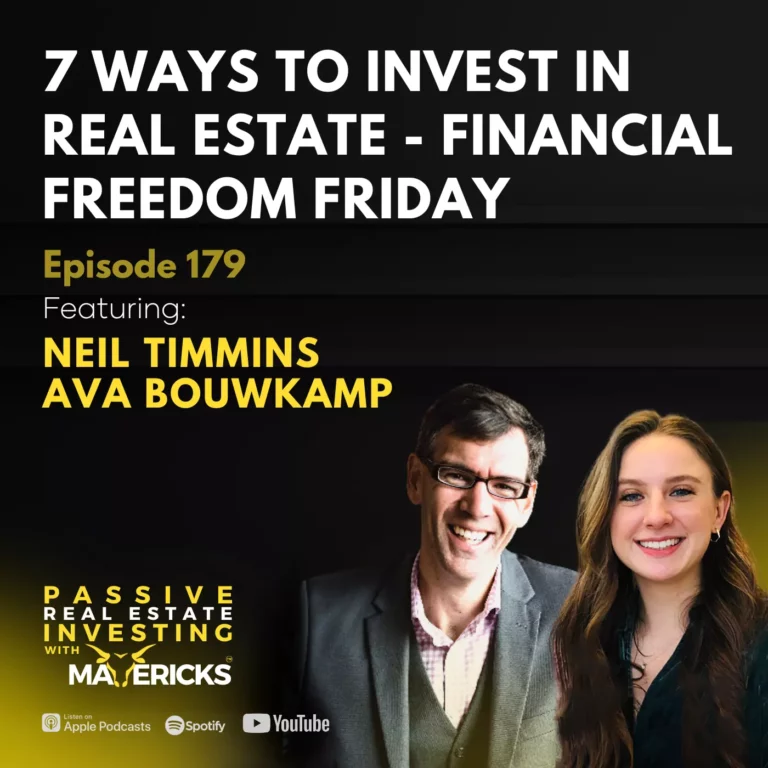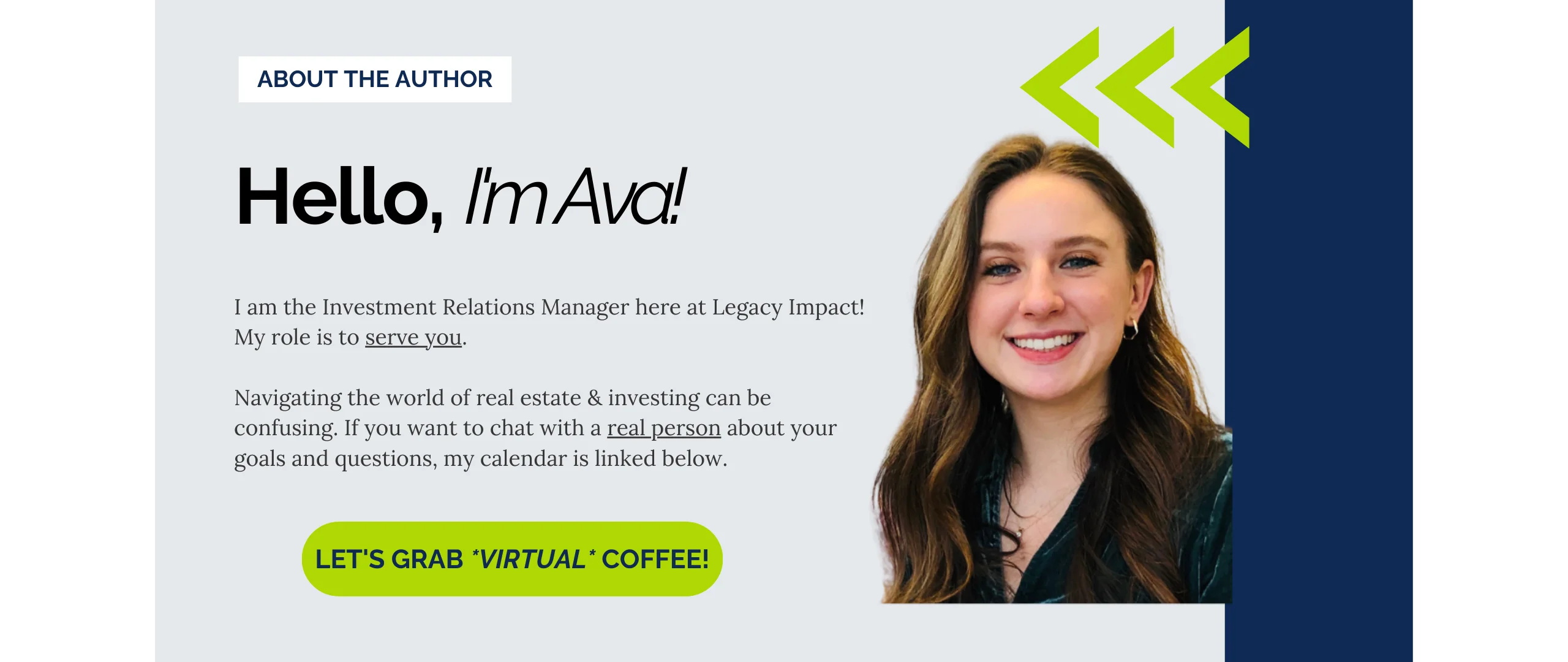
As an agent, you solve problems, play counselor and therapist, help people make decisions, and turn dreams into reality. Often, for top-producing agents, this can come at a great personal sacrifice. You are so busy running appointments, closings, and a team that you hardly have time to think and plan ahead for yourself. You know that investing in real estate can be a great way to create additional income streams, but you don’t know where to start. If you are an agent who knows you need to take control of your time and create additional income, keep reading so you don’t make this #1 mistake agents who invest often make.
Table of Contents
There’s an old saying in the industry that real estate agents don’t retire; they expire.
You probably don’t want to be the agent who is forced to expire before they get to retire on their own terms. There are four core reasons why residential agents don’t really retire or don’t retire at the comfort level they desire.
4 Reasons Why Residential Agents Struggle to Retire
No employer-sponsored or employer-matched retirement plan:
Realtors often don’t have access to a 401k or employee-sponsored plan, and there is no retirement matching. The benefit of being an agent is that you get to control what you do. In this case, it also relates to your retirement, which requires responsibility on your side. Nobody else will come in and do that for you.
Having to pay more taxes and healthcare costs than wage employees:
As an agent, you’re paying high taxes and health care costs—sometimes more health care costs than the average wage employee—because you might be 1099 or you’re on your own. Taxes take a big chunk out of your income.
Difficulty saving due to a lack of time and knowledge about their options:
Many agents that we hear from just don’t have enough time. Like these agents, you have a million things on your plate, so retirement and planning for retirement can get kicked down the list. You know it’s something that needs to get done, but often you’re so busy making sure that everyone gets to the closing table on time that it keeps getting put off until next week—for months and years.
Not taking advantage of real estate as an investment:
The biggest reason real estate agents don’t really retire or don’t retire at the comfort level they desire is because they do not take advantage of real estate as an investment. Agents are involved in real estate every day, but they often overlook their ability to harness that knowledge for their own investments.
Before we unpack the #1 mistake agents who invest make, why should high-earning realtors invest in real estate in the first place?
Why should high-earning agents invest in real estate?
We have come up with five basic reasons why you should invest in real estate.
Passive Income:
Number one is passive income. As a real estate agent, you’re busy. You have 50 million things going on, and you need to have the ability to leverage your time and create streams of passive income where you don’t have to be involved in day-to-day property management. You can continue doing what you do at an excellent level while earning passive income on a regular basis.
Recession Resistant:
Real estate is recession-resistant when properly bought and properly leveraged. Real estate, specifically commercial real estate, is historically recession-resistant and benefits, in many cases, during periods of inflation.
Tax Benefits:
As a realtor, you may qualify as a real estate professional in the eyes of the IRS. This is a special status dedicated to people who are heavily involved in the real estate industry. This allows you to apply tax depreciation losses from passive investments in real estate against your active income as an agent. This is a huge reason why, as a real estate agent, you should consider investing in real estate.
Funding Options:
Another benefit is the wide variety of funding options. You have your own money and liquid cash to use. But even beyond that, you may have a self-directed IRA, solo 401k, or SEP-IRA. You can invest through a trust or LLC. There are plenty of options beyond what I just mentioned!
Returns with Less Time Involvement:
The last benefit is that you can earn returns with less time involved. You only have so many hours in the day, and you cannot create more time. In many cases, it might be challenging for you to reduce your expenses. Perhaps you have a mortgage, kids in college, or other responsibilities that don’t allow you to cut expenses out of your life. Instead of trying to cut out all of these expenses, the easiest lever for you to pull as an agent is to bump up your income and use your commission as a vehicle to achieve another stream of income. This income could eventually allow you to become agent-optional, all without buying and managing 17 rentals on your own. You can invest in real estate and earn a return without being a landlord as a second job.
The #1 Fatal Mistake Unveiled
What is the number one fatal mistake real agents who invest make? Not having a clear investment goal. Many agents fall into this trap by not clearly defining their goal in the first place. There are two main components to setting a clear investment goal:
- Net worth amount: Define a net-worth goal
- Passive income amount: the amount of passive income you need to bring in to cover expenses
- Combination of net worth and passive income: for a lot of agents, it’s a combination of that net worth number and a passive income number. They want to have a certain net worth, and they want to have so much passive income. This allows them to live off the passive income that their real estate investments are making while their net worth continues to grow behind the scenes.
The Importance of Planning: Quantify with Numbers
Peter Drucker says, “You can only manage what you measure.” You need to apply that same kind of philosophy to your investment goals, especially when you go into real estate as an agent. You measure all sorts of things, including statistics and data, and that analysis of your business ultimately leads to listings, calls, sales, closings, and certainly commission dollars. You need to apply a similar strategy to building your wealth.
It’s not enough just to say or think, “I want to make more money,” “I want to make passive income,” or “I want to grow my net worth.” You must quantify the number. You can reverse engineer your action plans once you have that number.
By quantifying that number, you can focus on what it is going to take for you to get to that number. If it’s your monthly expenses, then you know exactly how much passive income you need to be free: where your passive income from investments exceeds your monthly expenses.
If something happens to you or to your business, the market, or interest rates, you will still have everything covered, and therefore, you won’t have to be anxious or worried! Once you know that number, you will know exactly how much you need to make to become agent-optional. Your number is specific to you and only you.
Practical Action Steps for Agents
Here are some very practical steps to help you become agent-optional on your own terms:
Assess your current financial situation:
You need to start by assessing your current financial situation. Where are you currently? That will help you know where to start and give you an idea of where you need to go.
Determine your number to be agent-optional:
What is the number you need to hit in passive income to become agent-optional? This number is different for everyone. Once you know that number, you can begin to reverse engineer your plan.
Set your goals:
Your long-term goal is to be agent-optional. It might be easier to take that number and then break it down into increments or short-term goals.
Start with a small hurdle and snowball:
Start with a small hurdle and snowball. You could try to get to 10% of your goal number, then 25% of that number, then 50%, then 75%, and before you know it, you are totally agent-optional.
Remember that the desire for passive income or more money is not enough. Just earning more money or doing more business isn’t enough. It’s not about the money; it’s about the things we get with the money—the additional experiences we can create with our family, the help we provide to our community, and the impact we can make in our world.



